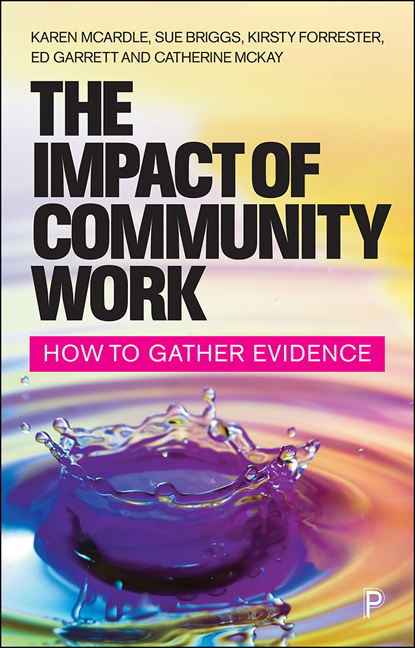8 - Interviews and Focus Groups
Published online by Cambridge University Press: 10 March 2021
Summary
Introduction
This chapter combines discussion of interviews and focus groups because they are both face-to-face means of gathering evidence of effectiveness. They are perhaps the most exciting means of gathering evidence, as the evidence comes directly from participants, who often have the most telling methods of letting us know exactly what they think about what we do.
We begin by thinking about metaphors that go with generating evidence by asking questions. Such metaphors include ‘extracting information’, ‘digging for ideas’ or ‘mining for data’ and are very one-sided, in that they refer to the person gathering data rather than the person who is providing it. They also assume there is a ‘truth’ residing in the interviewee that can be foraged out. We contend that any conversation or interview is a social dialogue in which meaning is constructed between people; it is never one-sided. People are social beings and always construct meaning together; this we suggest, demands metaphors of ‘building’, ‘developing ideas’ and ‘working together’. We propose that information generated in interviews is not a found ‘true’ answer to a question, but rather a co-construction of reality between two people. This means that awareness of both self and reflexivity on the part of the interviewer are crucial. For example, individuals interviewed about attitudes to pre-marital sex may give different answers or different slants to their opinion depending on the age of the interviewer. We return to reflexivity and self-awareness later in this chapter and we refer you to Chapter 15 on self-evaluation.
Engaging with people for interviews is very important if you wish to get more than just phatic or polite answers to questions. The interviewee in an interview situation is often expected to give all the words. We suggest that this is a gift of ideas from the interviewee and that it demands reciprocity. Engaging with the interviewee, and giving a bit of yourself, is a very effective means of doing this, and is a natural part of any conversation. It also equalises the implicit power dynamic of interviewer and interviewee. It can be done quite simply, by ‘giving’ an account of your journey to the interview, for example. Was the traffic heavy?
- Type
- Chapter
- Information
- The Impact of Community WorkHow to Gather Evidence, pp. 135 - 150Publisher: Bristol University PressPrint publication year: 2020

